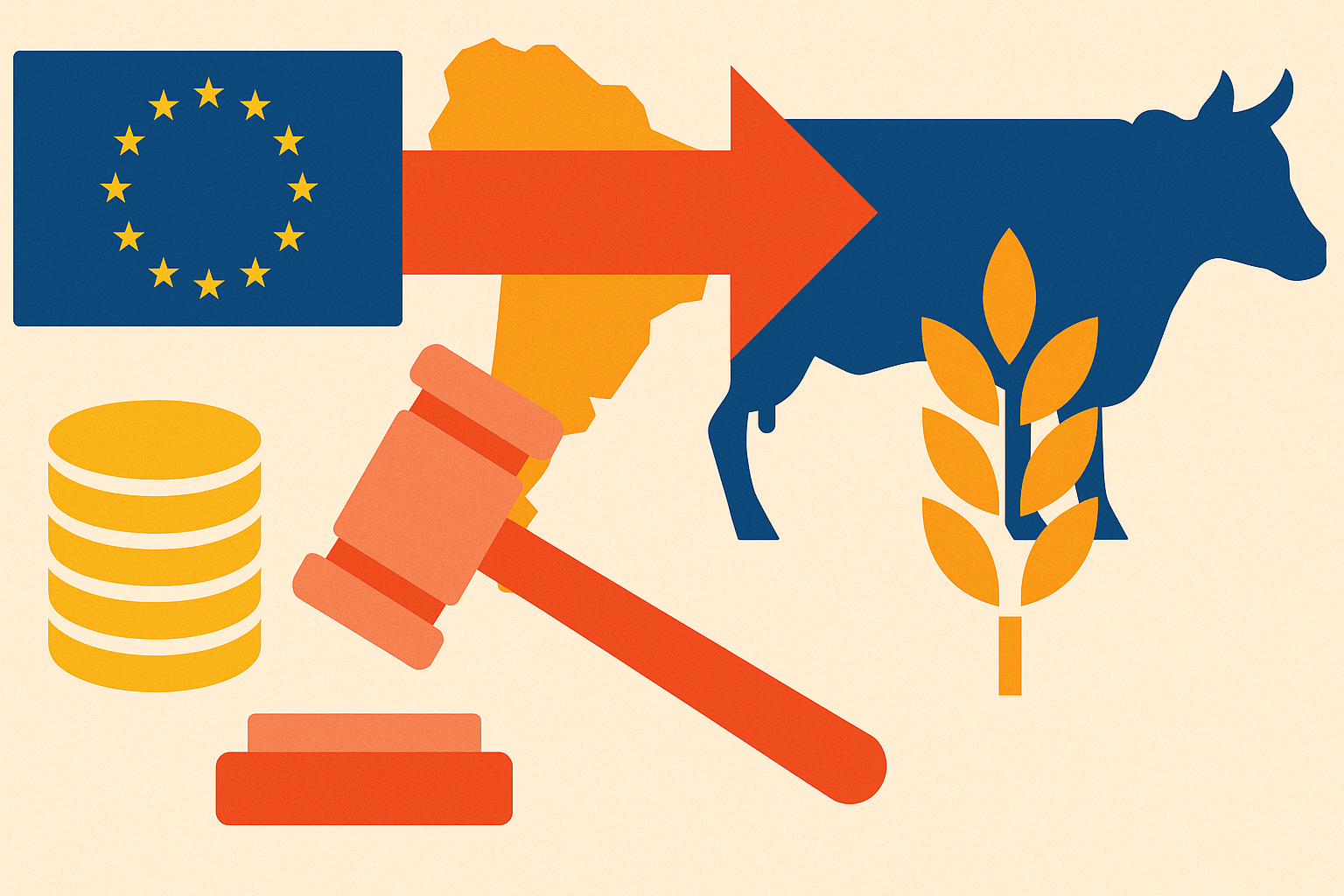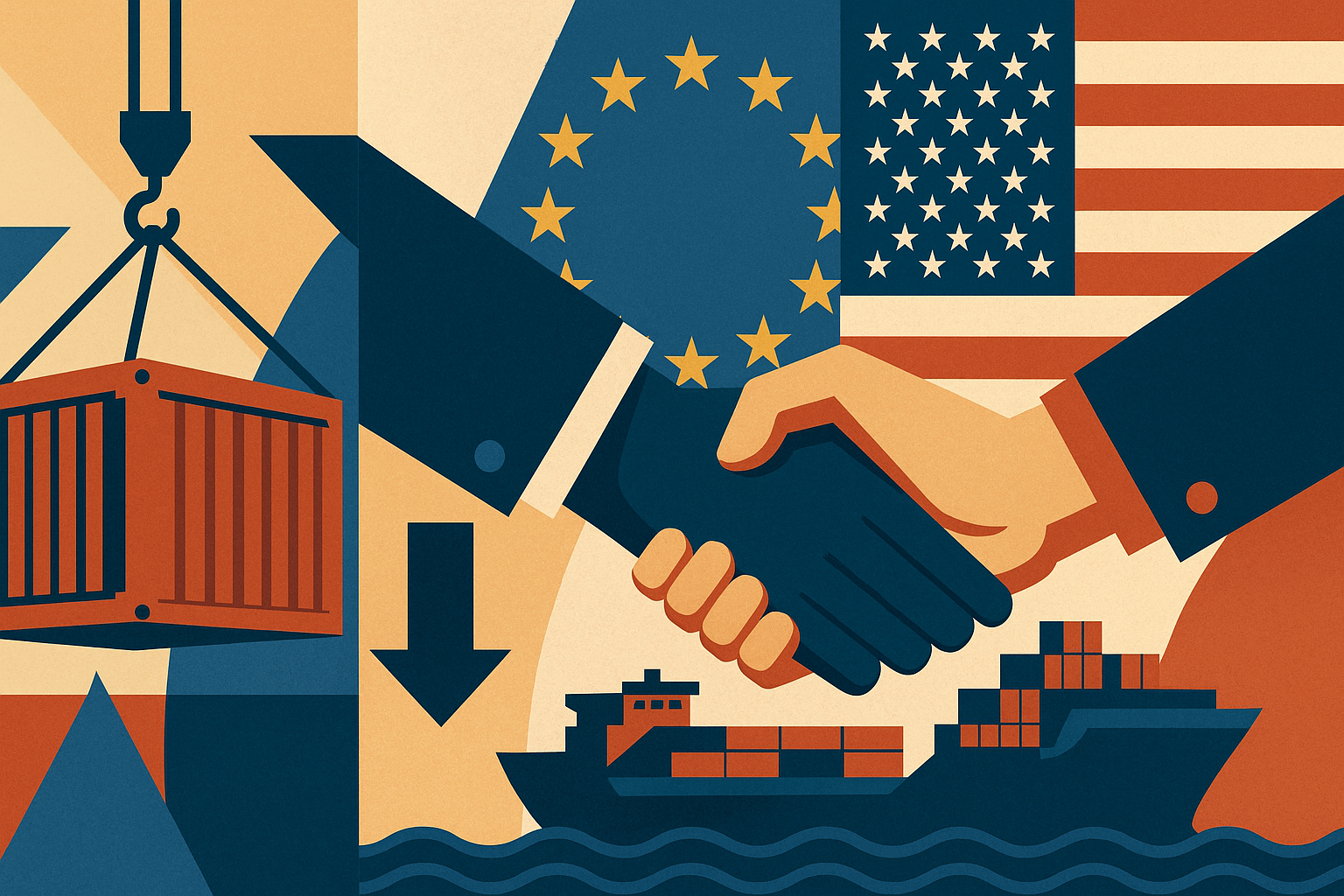The European Union has unveiled new legal protections for farmers as it moves forward with approving its largest-ever trade agreement with Mercosur, the bloc of South American countries that includes Argentina, Brazil, Paraguay, and Uruguay.
Stronger Safeguard Mechanisms
On Wednesday, the European Commission announced binding commitments to investigate any complaint from member states claiming that agricultural sectors are harmed by Mercosur imports. The safeguards are aimed at easing resistance from farmers in countries such as France and Poland, who have long criticised the pact — dubbed the “cows for cars” deal — for exposing local producers to increased competition from South American beef and poultry.
Under the mechanism, the EU will monitor imports of sensitive products including beef, chicken, and sugar. If volumes rise more than 10% or prices fall 10% below domestic levels in any member state, Brussels will launch an investigation. The agreement also allows both sides to suspend or reverse tariff liberalisation if evidence shows injury to farmers.
Additionally, the EU is expanding its emergency compensation fund for market disruptions and climate-related damage to nearly €1bn annually. “We have a belt, we have braces and an insurance policy,” said one senior official.
Political Reactions
France’s trade minister Laurent Saint-Martin welcomed the strengthened clause but said Paris would review it carefully before deciding. Italy’s Prime Minister Giorgia Meloni also signalled caution, noting her government would assess the proposal before supporting or rejecting final approval.
Blocking the deal would require at least four member states representing 35% of the EU population. France’s commissioner, Stéphane Séjourné, told colleagues he still had “grave reservations” and would only be convinced by a robust safeguard system.
Despite scepticism from farmers, industry leaders strongly support the agreement. Mercedes-Benz chief executive Ola Källenius, also president of the European automaker lobby ACEA, described it as essential at a time when the US has imposed 15% tariffs on EU car exports.
Economic Impact
If ratified, the agreement would create a market of 700mn people and increase EU exports to Mercosur by up to 39% (€49bn annually), supporting more than 440,000 jobs across Europe. Agricultural exports such as wine, spirits, chocolate, and olive oil are expected to benefit significantly from tariff reductions.
At the same time, Mercosur producers will be barred from using 344 EU-protected product names such as “feta” and “Parma ham.”
For European automakers, the deal promises a major advantage, with car tariffs falling from 35% to zero, partly offsetting losses from reduced access to the US market.
Divisions Remain
Farmers’ group Copa-Cogeca condemned the deal, saying it “sends yet another negative signal” to Europe’s agricultural community. Some French members of the European Parliament have pledged to oppose ratification, while the Greens plan to challenge it in the European Court of Justice over environmental concerns.
Nevertheless, many observers believe the pact will ultimately pass. John Clarke, a former Commission official involved in negotiations, argued the deal will have little real impact on European farming. Bernd Lange, chair of the Parliament’s trade committee, expressed optimism, calling it “a wonderful Christmas gift for the world” that demonstrates how trade can be rooted in constructive, democratic partnership.








